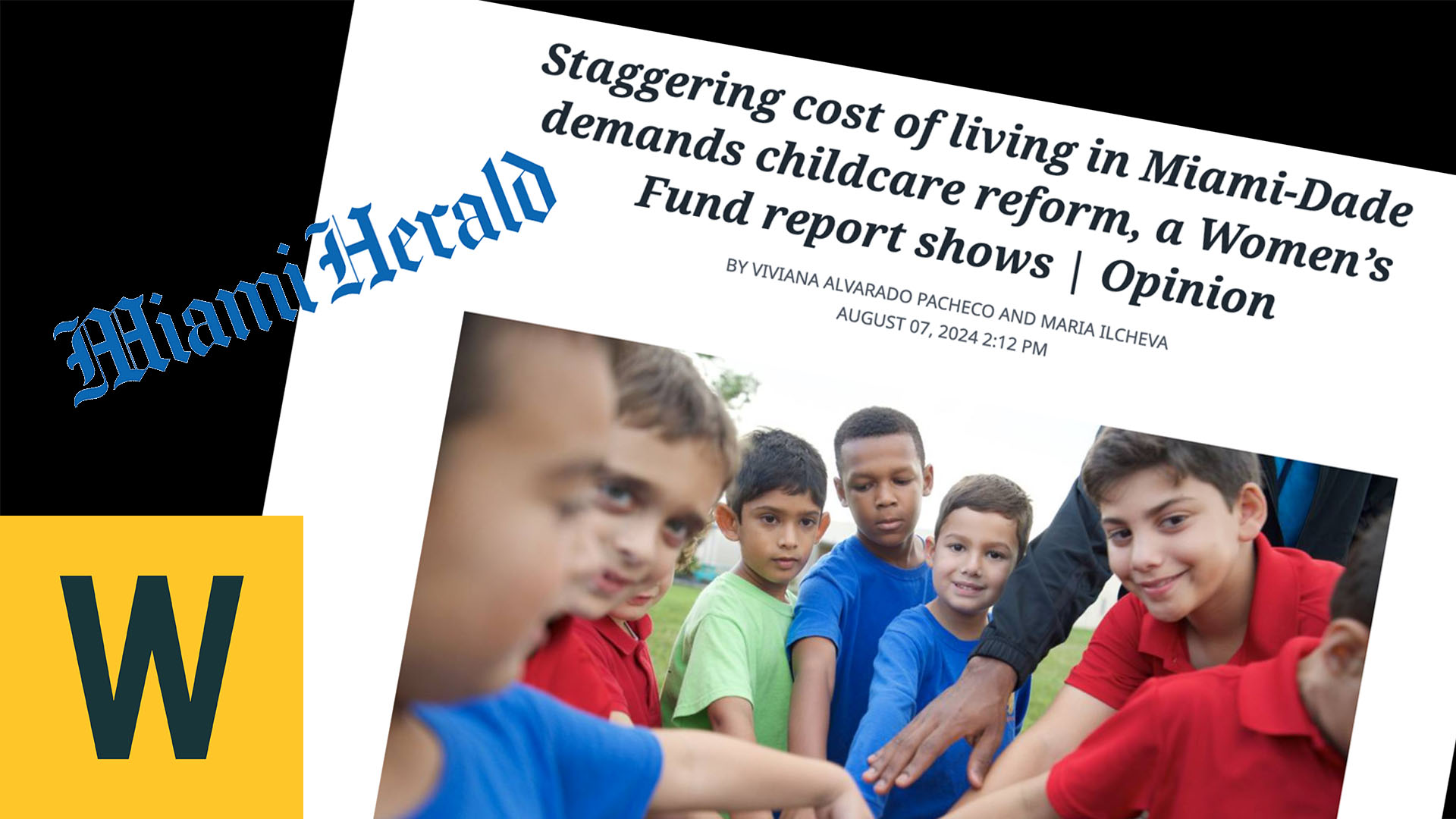THE MIAMI-DADE
SELF SUFFICIENCY
STANDARD

Can You Afford to Live in Miami-Dade?
The Miami-Dade Self-Sufficiency Standard (SSS) highlights the housing and childcare crises in Miami-Dade County, impacting all families.
The Miami-Dade Self-Sufficiency Standard (SSS) reveals the economic realities families face by calculating the income needed to cover their basic needs without assistance. It considers the costs of housing, child care, food, transportation, health care, and taxes and highlights the financial constraints of raising children and living in Miami-Dade. The SSS can be calculated for a wide range of families. These include families with a single adult without children, families with one adult and one infant, families with one adult and one preschooler, and so forth, up to families with three adults and six teenagers.
The SSS Dashboard is an interactive tool. You may change the variables to see the results. Note that the Dashboard will not display properly on screen below 1000 pixels wide. Please scale your browser as needed.
Solutions to Help Families Meet the Self-Sufficiency Standard

The Women’s Fund Gender Equity Index Economic Mobility Pillar presents policy recommendations to address some of the challenges families face:
Paid Parental Leave: Employers should adopt generous paid parental leave policies, which enhance economic security, boost new parents’ well-being, reduce infant mortality, and decrease turnover.
Government Regulation of Pay Equality: Government entities should require contractors to affirm and report on pay equity in their workforce through their procurement process.
Support Early Childhood Learning Programs: Employers should promote a financially sustainable business model for early childhood education programs that supports women in the workforce, organize advocacy efforts that improve early learning center operations and opportunities, and provide workforce protections.
GEI Economic Mobility 2024 One-Pager
Explore our detailed Economic Policy paper, Women’s Economic Mobility: Opportunities and Barriers, to learn more about our strategies and recommendations. It outlines proactive measures to bridge gaps and foster economic resilience in our community.

The Women’s Fund Miami-Dade has partnered with Miami Homes for All to highlight policy recommendations on housing
The Greater Miami Housing Alliance has two strategic priorities to advance policies for equitable affordable housing in 2024-2025.
Build or preserve more safe, affordable housing:
Housing Bond: We are advocating for the 305 Future Ready Bond. We are especially concerned with the urgent needs of residents with incomes at or below 50% of the Area Median Income (AMI). Recognizing the growing challenges of housing affordability, we hope to prioritize deeper affordability levels and allocate substantial funding to create meaningful solutions for our community.
improving Surtax: We aim to reduce the time for small and nonprofit affordable housing developers to access funds to expedite small-scale housing development or rehabilitation. This includes supporting community land trusts.
HOMES Plan: Ensuring residents are informed about and benefit from county programs, guaranteeing transparency in fund utilization. We are advocating that no funds intended for the HOMES Plan will be swept or diverted, ensuring their dedicated use for the betterment of our community’s housing needs.
Prevent displacement and reduce homelessness.
Preventing Displacement: prevent tenant displacement in preservation and rehabilitation projects.
Improving Living Conditions: We want to support residents living in subsidized housing live healthier lives.
Protecting tenant rights: By advocating for tenant rights, we ensure fair and equitable housing practices. Ensuring that tenants have the necessary legal support to navigate challenges and maintain their rights in the housing landscape.
To learn more about the Greater Miami Housing Alliance and see our policy platform, please click here.
In addition, Miami-Dade, confronting a large gap in our affordable housing supply, has an opportunity to close a significant share of that .
We created and analyzed a database of the affordable housing projects in the pipeline that do not yet have financing, reflecting 101 projects and 13,691 units. For the first time, this report tells us how much and what type of funding is needed to make those 13,691 affordable homes a reality. Read the full analysis here!
If you have any questions, Please email Rayna at rayna@miamihomesforall.org
Learn More About the Self-Sufficiency Standard

The Miami-Dade Self-Sufficiency Standard is produced by The University of Washington, Center for Women’s Welfare.


